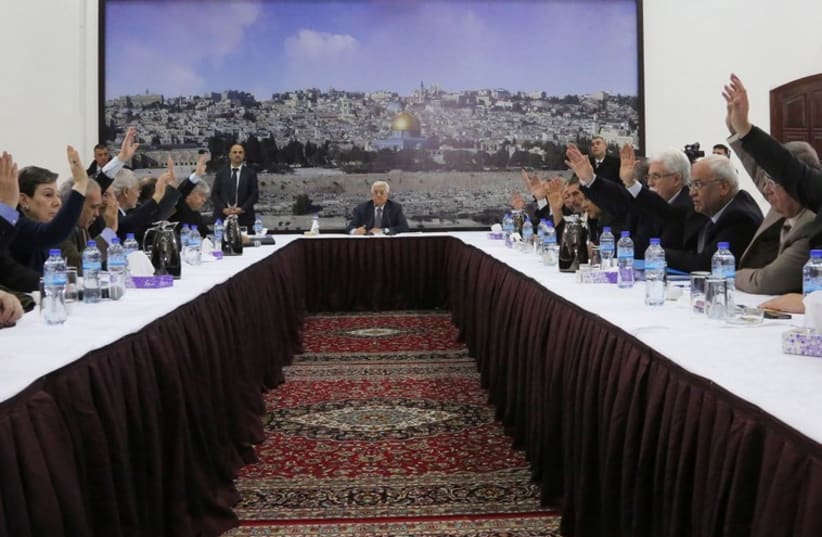Over the past weeks, in the context of Gantz's farewells to the various IDF divisions, the outgoing Chief of Staff spoke again and again about the fragile security reality in the West Bank. Gantz even spoke of the influence of politics on the territory, probably in reference to the upcoming Israeli elections and Palestinian Authority President Mahmoud Abbas' unilateral moves in international bodies.
Another cause of the "heating up" of the West Bank is Israel's decision not to transfer tax revenues to the Palestinian Authority in response to its ICC membership - a move that is bringing about the collapse of the Palestinian economy.
Against this background, the army has told the government that at any given moment the Palestinian Authority can collapse.In one of the scenarios that the IDF presented, a small localized security incident, like an altercation between settlers and Palestinians, or the throwing of a Molotov cocktail could quickly escalate to rioting in the Galilee and the Triangle area. With the weakened Palestinian Authority a situation like this is liable to lead to terrorist organizations taking control of the West Bank.
The army has pointed to the month of April as a critical moment for security in the West Bank. In April, the Palestinian Authority's money is expected to run out, it is slated to formally join the ICC and immediately ask to investigate Israel, and the new government in Israel will take power. Tensions surrounding all these events, including the anger caused in the Palestinian street if the current political leadership is re-elected to office, may lead to a deterioration in the security situation.
The IDF has begun to prepare for this possible deterioration, and with the Shin Bet (Israel Security Agency) has been carrying out many operations for the seizure of ammunition in the West Bank. In the process, the army has also seized funds meant to bolster Hamas's standing in the territory. The frequent operations are slated to continue through March.
The army says its fears of a security deterioration are based on an upswing in terror activity including the throwing of Molotov cocktails and stones and the use of other improvised weapons. Such acts have been carried out recently on a daily basis. The security assessments are also based on a rise in incitement against Israel in the Palestinian social media. Many of the prominent figures inciting against Israel are prisoners who were freed in 2011 in the deal to release IDF soldier Gilad Schalit.
The IDF says that the security situation is even more complicated by developments in areas outside of the West Bank. In Gaza desperation is on the rise as the rehabilitation following last summer's war is stalling raising the specter that Hamas will again open fire. On the Lebanese border and in the Golan Heights there is a state of alert after hostilities of past weeks.
